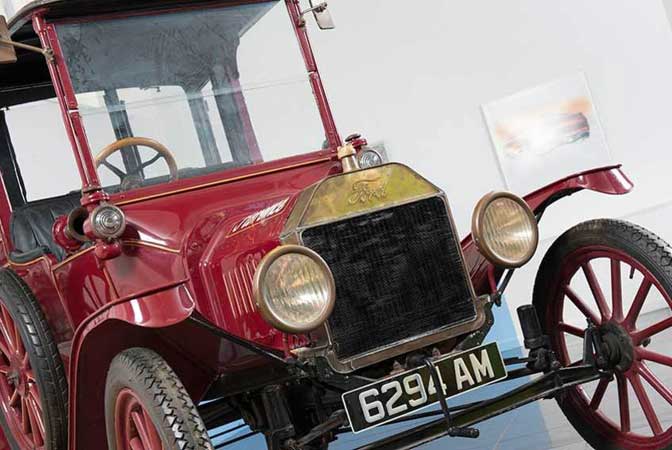
History of car rental: what has changed?
Surprisingly (or maybe not?) car rental has been around for more than a century! As soon as cars were introduced to the public, clever entrepreneurs identified a growing demand for renting. However, before Karl Benz and Wilhelm Maybach invented the modern car as we know it, people would still rent out horses and carriages. Even in ancient Rome, chariots were rented.
Has much changed since the beginning of the 20th century? Let’s have a look and see what’s been happening in the car hire industry…
1900s
The earliest records of car hire can be traced as far back as 1904, when a bicycle shop in Minneapolis started offering cars for rent. A few years later, the German company Sixt was established in 1912. It first started off with three cars for rent and quickly expanded.
In 1915, in Omaha, Nebraska, Joe Saunders had a eureka moment and realised that nobody in Omaha offered cars for renting. He employed only one salesperson, Frank Arndt, from Germany, and started renting out Arndt’s Model T. This venture turned out to be so successful that by 1917, he was renting out 120 of these. He named the company ‘Saunders Drive-It-Yourself System’ and put an advertisement in the local paper. Joe Saunders’ three brothers and father started taking part in the business and by 1927, the Saunders System had branches in over 85 cities.

In the meantime, in Chicago, Walter L Jacobs started renting Model T Fords to the public, with an initial fleet of 12 cars. He was a very innovative businessman, with a keen interest in advertising, which helped the company grow quickly. By 1923, the company grossed $1million, a remarkable number for its time.
Jacobs sold his company to John D Hertz and started working as chief executive officer. In an interview, Jacobs said that in most cases, people rented a car because it’s way too expensive to own one. He also noted that there was hardly any renting by business customers.
Godfrey Davis UK, the first British car rental company, was also established back in 1920. The French company Europcar bought this company in 1981.

1950s
As the automotive industry progressed and expanded, so did car rental companies. Also, the railway industry worked closely with rental companies and allocated them spaces at rail stations. After the war, many people started hiring cars as they had more disposable income. Avis, an American rental company, purchased Saunders Systems in 1955, while Hertz was bought by GMC and later by the Omnibus Corporation.
As demand rose dramatically, so did supply and some of the biggest rental companies were established, including National Car Rental (1947) and Enterprise Rent-A-Car (1957).
As travel opportunities soared, and the costs of travel fell, these rental companies become international. More people owned a car, but many still preferred to rent. People’s lifestyles changed and it wasn’t uncommon for people to rent a car for months.
In the UK, Arnold Clark Car & Van Rental was established in 1963. It was one of the first British companies to offer car hire and now has a fleet of over 6,000 vehicles.
The second half of the 20th century also marked a boom in the financial and public sector, which meant that companies began working with businesses. This really helped the growth and development of the rental corporations, which are now international giants.
2000s

Nowadays, companies have moved on from the old Model T and have diversified their fleets with hundreds of different car brands. Also, there are now car, van, truck, boat and even helicopter rental companies!
In the 21st century, rental companies have mushroomed all over the world as demand is on the rise. As the world becomes more globalised, people travel at an unprecedented rate and they hire cars, vans and other vehicles more often than ever.
A few centuries ago renting a car involved lots of paperwork, nowadays you often need nothing more than your driving licence. Various award shows and competitions make sure that all companies deliver their promises and perform to a certain level.
Back to Latest News